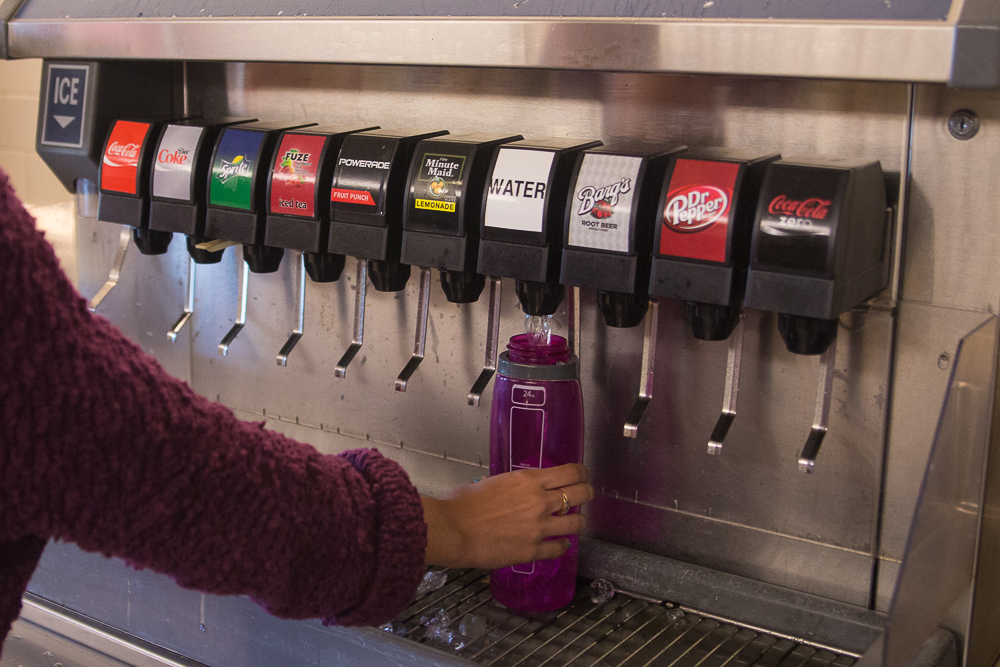LA county recently launched a campaign against childhood obesity, encouraging drinking water and leading healthier lifestyles. Steve Rall, general manager for Bon Appetit, said campus food services encourage students to make healthier living a priority.
THE MAIN GOAL
One of the main goals of the campaign encourages drinking water. According to Rall, water is the most popular drink in the cafeteria. In fact, he has noticed that if someone gets a glass of soda, they will also usually get a glass of water. It is important to continue encouraging this habit because, according to the LA Times, drinking a soda every day can send a dangerous amount of sugar into the body.
“A man that has two sugar sodas a day has a 25 percent greater chance of having a heart attack,” Rall said.
Rall explains drinking water should not be the students’ only concern. He emphasizes that students should only put in as much food and calories as they are putting out in energy. After drinking water, moderation is the key to staying healthy.
ENSURING A HEALTHY LIFESTYLE
Sydney Thompson, freshman biological sciences major, talks about her goals to ensure a healthy lifestyle, both in her eating and exercising habits.
“I try not to eat a lot of junk food, like whenever I go shopping for food I try to just to get like the healthy food stuff. I drink at least two bottles of water,” Thompson said. “I work out at least an hour a day, like I run a mile every day and then I do like my cardio.”
Rall emphasizes that even though they try to educate, it really comes down to the choices made by the students.
“We can try to teach people, people know what’s good for them, it’s really how do they live and decide to make that decision,” Rall said
CONTACTING THE HEALTH CENTER
Tami Hocking, physician at the student health center, fully supports the LA county campaign, although she believes obesity is best addressed through a one-on-one visit with a doctor or nurse.
“Obesity is a concern because it dramatically increases a person’s risk for heart disease and stroke. Also people who are obese have a much higher incidence of diabetes,” Hocking said.
According to a study done by the CDC in 2005, the average for college campuses across the country was 3 out of every 10 students are either overweight or obese, although Hocking believes this number to be higher now across the nation, she also suspects that Biola may have a lower number, due to the higher, socio-economic status of students.
Hocking hopes anyone who is concerned about their health or has any question regarding a healthy lifestyle will contact the health center to make an appointment with a doctor or nurse. She said that they would be happy to help students take the best steps to keeping a healthy weight.







